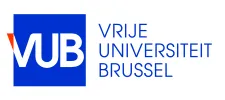
FOOS | Forced Oscillations
Offshore wind turbines are subjected to significant dynamic excitations, both from wind and waves. If not properly damped, the resulting oscillating loads can be detrimental for the lifetime of the foundation. The project investigates the causes and impact of power oscillations from offshore wind farms on power system stability, addressing risks to safe operation, potential system-wide consequences as well as mitigation measures.
Context
When wind turbines are in operation, front-aft oscillations have significant aerodynamic damping, sideways oscillations unfortunately have little passive damping. For this reason, wind turbine manufacturers provide active tower damper solutions. However wind-turbines keep creating oscillations in the power output, which can on its turn have a destabilising effect on the power grid. There is an urgent need to understand power oscillations, which are increasingly important for transmission system operators and wind farms operators for accurate assessments for new concessions such as the Princess Elisabeth Zone.
The "cSBO FOOS Forced Oscillations" project addresses and mitigates power oscillations caused by offshore wind farms in the North Sea to ensure grid stability. Novel models will predict the severity of the phenomenon for future (larger) wind turbine generations and their interaction with the European grid. Mitigation solutions for these power oscillations will be identified ,investigated and evaluated on their efficacy in dampening power oscillations and their overall efficiency, both in existing wind parks and in anticipated scenarios in the upcoming Princess Elisabeth Zone concessions. The mitigation measures can be applied at various levels, including the individual wind turbine, the wind farm, or the broader grid. The project aims to find solutions that are beneficial for both offshore wind farm operators and grid managers, taking into account factors such as safety and costs. Promising technologies will be further analysed through performance comparisons and sensitivity analysis.
The understanding phenomena that could impact the stability of the power system project are not only significant for Belgium but for the EU’s energy transition strategy, as offshore wind power plays a crucial role in achieving ambitious targets, such as 70 GW by 2030.
Objective and results
FOOS aims at a comprehensive approach towards enhancing grid stability in the context of offshore wind energy integration. The project focuses on several key areas:
- Foundation monitoring and the development of integrated wind turbine models, crucial for qualitatively and quantitatively understanding the power oscillations of offshore wind turbines and its interaction with loading on the foundation.
- Grid impact and stability assessment by a data-driven characterisation using existing offshore wind park data for a comprehensive understanding of power oscillations and structural parameters associated with these oscillations, at various levels, including turbine, farm, and zone-wide levels. This involves updating grid requirements to accommodate the evolving dynamics of energy generation and distribution.
- Quantitative analysis and sophisticated modelling techniques (reduced order models) to study the sensitivity of the power oscillations under different conditions enabling to understand and quantify the impact of power oscillations on the larger grid network and analyse interactions between wind farms and the grid.
- Electrical and structural solutions and strategies to mitigate the impact of power oscillations at various levels, from individual turbines to the entire grid system will be evaluated and compared. The impact of mitigation solutions on the ‘Levelized Cost of Energy’ (LCOE) will be quantified, assessing the cost implications at the wind turbine and grid levels, with a specific focus on the PEZ case.
The FOOS project involves an Industrial Advisory Board and aims at a synergy between research and practical solutions, contributing significantly to the field of renewable energy, particularly in ensuring the safe and efficient integration of offshore wind energy into the power grid. The approach addresses both the immediate challenges and the long-term sustainability of renewable energy sources in power systems. The findings will be published in open-access reports and peer-reviewed publications and disseminated via workshops and final event focusing on potential mitigation actions and the impact on the PE-zone.
Funding
Funding Agency
- The FOOS project is part of the Blauwe cluster.
Funding framework
- VLAIO CSBO






